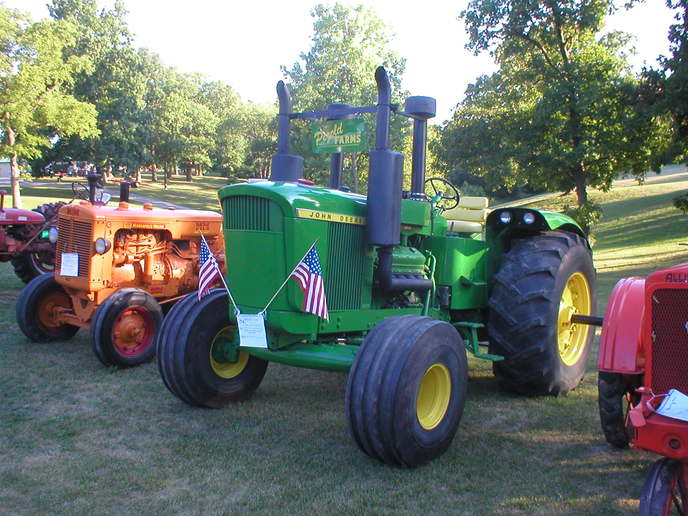Prawn Farmer
Member
How did they perform as far as torque, fuel efficiency, durability? Anyone ever own one?

(quoted from post at 09:23:24 12/27/13) I have three tractors with Detroit Diesel engines in them.An Oliver 1900 with a Detroit 4-53,Oliver Super 99GM with a Detroit 3-71,and a Case 900 that I installed a Detroit 4-71 in.They are wonderful.I have used them to plow with and the power is great.Fuel economy per hour used is unsurpassed.Open them up wide open in the gear you choose and leave it there and it is pure power.Back in the 40s and 50s Detroit made kits to install there engines in all brands and sizes of tractors.They were as reliable if not more so than any manufactures engines.
(quoted from post at 18:24:39 12/27/13) Enormous numbers of 2 stroke detroits are still on the job - many more than four stroke Macks.
Dean
(quoted from post at 23:17:09 12/27/13)(quoted from post at 18:24:39 12/27/13) Enormous numbers of 2 stroke detroits are still on the job - many more than four stroke Macks.
Dean
What job are they on? It seems that I see about 10,000 Macks for every two stroke Detroit that I see.
(quoted from post at 20:40:53 12/27/13)(quoted from post at 23:17:09 12/27/13)(quoted from post at 18:24:39 12/27/13) Enormous numbers of 2 stroke detroits are still on the job - many more than four stroke Macks.
Dean[/quot
What job are they on? It seems that I see about 10,000 Macks for every two stroke Detroit that I see.
10,000 Macks ........................How big are the fish you catch ?
B&D, do you ever have anything good or kind or edifying or friendly to say? You obviously know a lot about many things and have a lot of life experience, but I expect that your home is a very dark place. I feel sorry for you! So about Macks try this: Go to Truck Paper and see how many trucks you can find that have Detroits in them. Not going to find many. Then look at Macks for sale, 99 out of a hundred have Mack engines. I used to see a fair amount of trucks with Detroits. My wife's step father had one, A place that I worked in the 70s had a bunch of them. But few are on the road to be seen any more. I drive a fair amount, and can easily see over 100 Macks on a given day. Here in the Northeast they are fairly popular, I drive one from time to time. Maybe you have a truck or something in your area that commonly uses Detroits, but in the North East I know of no common use for them. The only place that I know of to see any are at tractor pulls, where there used to be a few but for the last five years there is only one that is brought out. So I will stand by my 10,000 to 1 estimate and I don't know how big your fish are but I will say that I think that I can smell them rotting from here.
We sell tractor parts! We have the parts you need to repair your tractor - the right parts. Our low prices and years of research make us your best choice when you need parts. Shop Online Today.
Copyright © 1997-2024 Yesterday's Tractor Co.
All Rights Reserved. Reproduction of any part of this website, including design and content, without written permission is strictly prohibited. Trade Marks and Trade Names contained and used in this Website are those of others, and are used in this Website in a descriptive sense to refer to the products of others. Use of this Web site constitutes acceptance of our User Agreement and Privacy Policy TRADEMARK DISCLAIMER: Tradenames and Trademarks referred to within Yesterday's Tractor Co. products and within the Yesterday's Tractor Co. websites are the property of their respective trademark holders. None of these trademark holders are affiliated with Yesterday's Tractor Co., our products, or our website nor are we sponsored by them. John Deere and its logos are the registered trademarks of the John Deere Corporation. Agco, Agco Allis, White, Massey Ferguson and their logos are the registered trademarks of AGCO Corporation. Case, Case-IH, Farmall, International Harvester, New Holland and their logos are registered trademarks of CNH Global N.V.
Yesterday's Tractors - Antique Tractor Headquarters
Website Accessibility Policy
